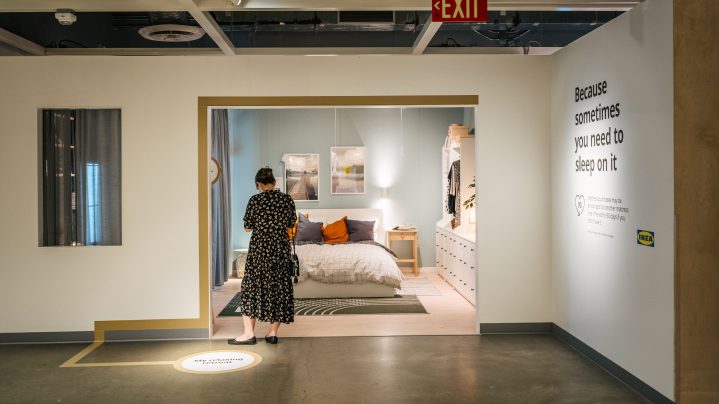
As discretionary spending slows, retailers try to make themselves essential
As discretionary spending slows, retailers try to make themselves essential

Consumer spending is slowing down as people continue to grapple with rising costs. So what are companies doing to keep customers shelling out?
It’s sometimes hard to remember the weird COVID lockdown days. There were hobbies, like baking bread. Those hours of streaming — remember “Tiger King”? And the sudden interest in home improvement.
“The amount of demand was just, in fact, overwhelming,” said Grant Henegan, who owns Viridien, a small chain of outdoor furniture stores in North and South Carolina.
That demand was good for business during the early phase of COVID, but Henegan said it’s giving him a lot of trouble now.
“I feel like people have bought forward,” he said. “So sales that we should be making in ‘23 and ‘24, we actually made in ‘21 and ‘22. And I think we’re going to have to work our way through the next at least 18 months to kind of get back to a more normalized sales cycle.”
Consumers bought so much stuff a couple of years ago that they don’t need to buy as much now. Plus, big-ticket items like furniture and discretionary items like clothes are the first categories households cut when budgets are strained, said Sonia Lapinsky, managing director of retail at AlixPartners.
“Consumers are pulling back on spending, and they’re going to be buying the necessities first,” she said. “They’re going to be food, they’re going to be buying gas.”
That, of course, has a lot of retailers worried. Dana Peterson, chief economist at The Conference Board, which surveys CEOs, said there’s a common strategy among companies right now: “Businesses are looking at where they can find incremental revenue.”
Things like moving more business online and adding services to their offerings. That’s Grant Henegan’s strategy at his furniture store. He’s been leaning more on upholstery cleaning and aluminum refinishing. “Especially to those customers who, you know, bought product over the last five or 10 years.”
One bright spot? He’s finally hired enough staff again to make sales calls.
There’s a lot happening in the world. Through it all, Marketplace is here for you.
You rely on Marketplace to break down the world’s events and tell you how it affects you in a fact-based, approachable way. We rely on your financial support to keep making that possible.
Your donation today powers the independent journalism that you rely on. For just $5/month, you can help sustain Marketplace so we can keep reporting on the things that matter to you.











